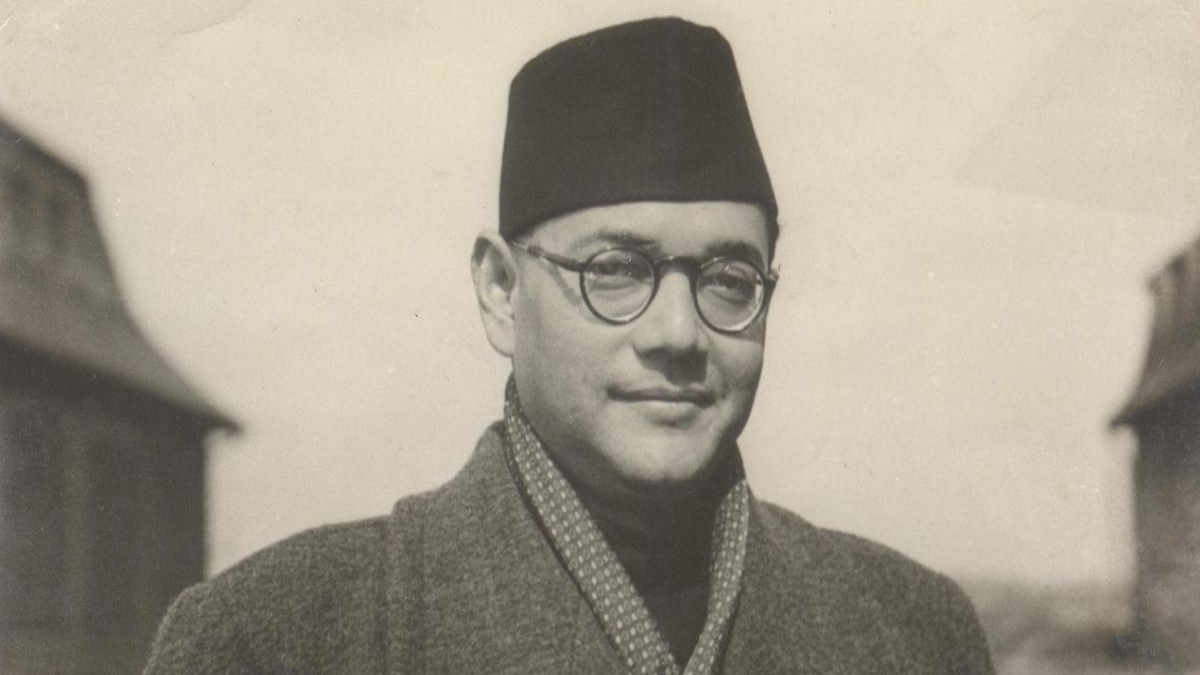
Established more than ten years ago in 2011, World Hunger Day reminds us about the global food crisis. Observed on 28 May, as the day approaches this year, it is an opportune time to reflect on the devastating Bengal Famine of 1943-44, the last major famine in India that claimed so many lives.
Even though Subhash Bose and the Indian National Army are increasingly given credit, albeit belatedly, for their immense contribution to the cause of Indian independence, few know of Netaji’s attempt to bring an end to that famine. Yet it is a matter of historical record that one of India’s great sons tried his best to stem the rising tide of deaths and suffering, but that offer of help was ignored by the powers that be.
On 10 June, 1943, after Subhash Bose met Tojo Hideki, the Japanese Prime minister, he went on to Singapore to take charge of the Indian National Army where his arrival energised its members. On a visit thereafter to Burma, he met Burmese Prime Minister Ba Maw who would speak of him as follows: ‘When Bose really got down to his subject, he gave you a feeling that you were listening not to a man but to a force or something big and impersonal like that, to a long-pent primordial force suddenly breaking through.’
Meanwhile, the Bengal famine which commenced in December 1942 raged on. Across villages in Bengal, dead bodies piled up. The streets of Calcutta were full of emaciated men, women and children starving to death. Harrowing accounts of that famine are provided in Madhusree Mukerjee’s brilliant, award-winning book ‘Churchill’s Secret War: The British Empire and the Ravaging of India during World War II.’
Grain had been shipped off from India to feed the soldier fighting for the Allied Forces in Europe, but in Bengal, people were starving. Shashi Tharoor speaks of how Churchill ignored message after message coming in from British officials on the ground and was, therefore, directly responsible for millions of deaths. There was, Ms Mukerjee writes in her book, another way for many of those lives to have been saved. That is, if the British had accepted the offer made by Subhash Bose that in a special arrangement, the Axis Powers would supply rice to the starving people of Bengal.
How did Westminster react to Bose’s offer? British rulers must have wondered if Netaji was bluffing and whether they should call his bluff, but upon consideration decided that it was unlikely that he was doing so. Historian Sugata Bose writes: ‘When it came to a question of Bengalis starving to death, Subhash Chandra Bose would not have engaged in a propaganda stunt. When you look at his life, he was engaged in social work – plague relief and flood relief – since childhood.’ In Bose’s autobiography ‘The Indian Pilgrim,’ he writes of the time when, while still a student, he went to help the suffering in a village in Bengal where a cholera epidemic had broken out.
Not only did the British refuse Bose’s offer, orders were issued to make sure that the news did not get out and no one in India came to know that an offer had been made that could have, potentially, saved millions of lives. Conservative estimates suggest that two million people lost their lives due to malnourishment or disease during the Bengal famine.
Could it be argued in defence of the British that it was an offer that they could not have accepted? It would have been too great a propaganda victory for Subash Bose, the INA and the Axis powers. The British hold on India would also have been immeasurably weakened as a consequence. As Mukerjee points out in her book, help was potentially at hand. The Australians were willing to send food as were the Canadians. Both Australia and Canada were far away but Burma from where the rice would have been shipped to India was right next door and the rice offered by Bose could have arrived in a week’s time. A hundred thousand tonnes of rice could have saved at least half a million lives and by the time the worst of the famine was over, the winter harvest would have been ready.
Arguments defending Churchill carry little weight, if considered dispassionately. As a matter of fact, without in any way diminishing the evil that Hitler represented, the Fuhrer may have been more kindly disposed to the sufferings of starving people than Churchill was. How can this be said? It is a matter of historical record that in the winter of 1941 when the people of Greece didn’t have food to eat, Germany permitted the International Red Cross and other humanitarian agencies to bring in supplies and distribute them to the needy. It was an instance of Axis-Allied cooperation during the war that would have received the go-ahead from Hitler.
Forget enemies, even Britain’s allies were willing to offer help. Canada, New Zealand, South Africa and Australia were all willing to help but His Majesty’s Government refused to act. An Australian Minister reportedly stated: ‘Australia could supply all the wheat needed for the starving in India, provided that the United Kingdom could provide the ships.’ ‘Wheat,’ added the minister, ‘was practically waiting to be loaded on boats’.
Those boats never arrived. How Bose must have suffered and have longed to be in India with his people to try and do what he could to help. Even from another country, he tried his best to salvage the situation but to no avail. The description of the famine and the stories of suffering that Mukerjee tells in her book are heartrending. Emperor Nero, it is famously said, played the fiddle, while Rome burned. Churchill, on the other hand, sipped wine as he dug into his full English breakfast, something he often did, and simply looked away while millions starved to death in India.

Rajesh Talwar is the prolific author of 36 books across multiple genres, and has worked for the United Nations for more than two decades across three continents. He is the author of ‘The Vanishing of Subhash Bose: The Mystery Unlocked.’